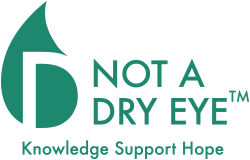Many medications have side effects that can cause or contribute to Dry Eye symptoms. Some of the medications that have been reported to cause Dry Eye are:
ACE Inhibitors
Angiotensin-converting enzyme inhibitors are mostly used to treat high blood pressure.
Antihistamines
Antihistamines may help reduce allergies, but studies show that these drugs also contribute to decrease of tear film production. Zyrtec and Claritin are the most popular antihistamines used.
Antidepressants
Antidepressants are known to cause ocular drying. Celexa, Lexapro, Zoloft, Wellbutrin, and Paxil are all antidepressants that have reportedly made conditions worse.
Anti-anxiety/Panic Medications
Benzodiazepines, like alprazolam, work by slowing down the movement of chemicals in the brain that may become unbalanced. They also contribute to Dry Eye symptoms.
Birth Control Pills
Dry Eye is listed as a side effect of birth control pills because these drugs alter hormone levels. Stopping the pills should stop the dryness. However, pregnancy is also known to cause Dry Eye for the same reason: hormone levels change.
Chemotherapy Drugs
Chemotherapy drugs can have serious side effects. Some chemotherapy drugs can especially affect the secretory organs of the eyes (e.g., lacrimal and/or meibomian glands).
Decongestants
Like antihistamines decongestants may help to reduce allergy symptoms but studies show that they contribute to decreased tear film production.
Diuretics
These drugs are mostly used to treat high blood pressure.
Isotretinoin-Type Drugs
These drugs are mostly used to treat acne conditions.
Opiates
Opiate-based medicines, such as morphine, are often prescribed for extreme pain.
Sleeping Pills
Over-the-counter and prescription sleep aids are noted for causing the following side effects: dizziness, confusion, drowsiness the next day, dry mouth, and dry eyes.
Adapted from EyeHealthWeb

